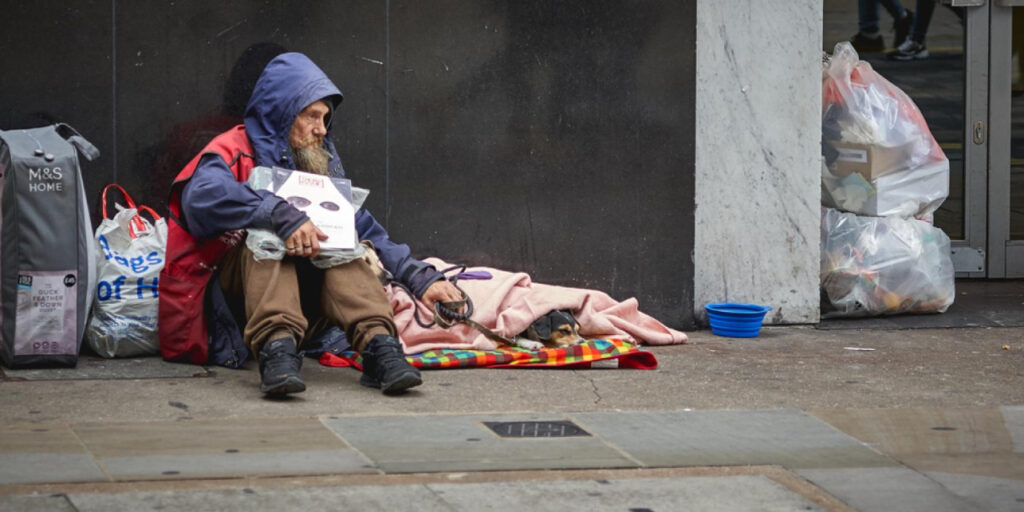New research by Shelter reveals a staggering 354,000 people in England are homeless, including 161,500 children, marking a 14% increase (44,500 people) from the previous year.
This equates to one in 160 people experiencing homelessness today, up from one in 182 last year, due to a surge in rough sleeping and families trapped in temporary accommodations.
Key Findings:
326,000 people live in temporary accommodation (a 17% increase).
3,900 people sleep rough on any given night (a 10% increase).
An additional 16,600 single individuals reside in hostels or homeless shelters.
The housing crisis is exacerbated by record-high private rents, inadequate housing benefits, increased evictions, and a dire shortage of affordable social homes.
Families often spend years in cramped temporary accommodations like B&Bs, sharing basic facilities with strangers. Meanwhile, over 1.3 million households remain on social housing waiting lists.
London has the highest rates, with one in 47 people homeless. Newham tops the list with one in 18.
Outside London, Slough leads with one in 51 homeless, followed by Luton (one in 57) and Manchester (one in 61).
The North East experienced the largest annual increase, with homelessness rising by 53%.
Polly Neate, Shelter’s CEO, emphasised the devastating impact on families, especially children, and called for immediate investment in social housing to address the crisis.
She urged public support for Shelter’s efforts to provide emergency aid and expert guidance to those in need.
“Extortionate private rents combined with a dire lack of genuinely affordable social homes is trapping more and more people in homelessness,” said Neate.
“Until the government builds the social homes needed to end the housing emergency for good, Shelter will be there for people facing the devastation of homelessness.”
London remains at the epicentre of the crisis, with 183,000 people in temporary accommodation, including nearly 90,000 children—averaging one homeless child per classroom. Borough councils now spend £4 million daily on temporary accommodation, a 68% rise in one year.
Cllr Grace Williams, London Councils’ Housing & Regeneration Lead, warned “The impact of homelessness on individuals – especially children – is devastating and the pressures on local services are unsustainable. We need urgent action to turn the crisis around.”
Proposed Solutions:
Double Homelessness Prevention Grant: An emergency funding boost for local councils to support struggling households.
Increase Local Housing Allowance (LHA) Rates: Align LHA with market rents to make private rentals accessible.
Remove Housing Benefit Caps: Lift the outdated 2011 cap on temporary accommodation reimbursements to reflect current costs.


